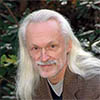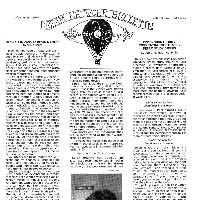What? The president of an international dream association is telling us not to interpret our dreams? Banish him to the tower immediately!
Wait! Let me explain.
When referring to dreamwork, I have trouble with the term, “interpretation,” as it implies determination of a finite “meaning” and we all know dreams carry multiple meanings. I don’t think the purpose of dreamwork is interpretation, but many people come to dream groups expecting their dream to be “interpreted,” suggesting that there is just one explanation for the dream – and that the dream is meant just for them.
In an open dream group I led in Asheville, North Carolina people dropped in and shared dreams that amazed and perplexed them. Of course the next words out of their mouths were, “What does it mean?” The group would spend the next hour or so laboriously “working” each dream and the dreamer usually left with some degree of satisfaction in regard to what the dream was about. That was the conclusion of their experience.
Most of these people had little interest in learning how to work on their own dreams such as starting a journal or studying their dream history. They represent many who have dreams that pique their curiosity, but would prefer others to tell them what they mean. Some are even willing to pay a few dollars to an “expert” or skim through a dream dictionary to gain insight.
When doing dreamwork, I prefer the term, “exploration.” I see our roles as dream facilitators or group members as ones who explore a dream in an effort to help the dreamer attain self-discovery. In group settings, exploration is magnified and multiplied. When shared, one person’s dream does not belong to that person alone but takes on its own life within each member of the group.
I tell my groups that a dream is brand new when it occurs in sleep and is again brand new when it is told. Each person hearing it is creating a version of the dream and it is no longer one dream, but many. In other words there is a new dream being dreamed at that moment by each person in the room as well as each person in their families, co-workers or social network friends – and each one grows from the insight of the one dream captured by one person.
In effect, we are not interpreting a dream, but we are opening up multitudes of possibilities for the dreamers exposed to it. I don’t call my groups dream analysis or dream interpretation groups, but rather dream study groups. We study. We explore. We experience the dream. And we each benefit from that experience.
Every person who hears a dream becomes a facilitator; one who serves the dreamer by listening and attempting to understand the aspects of the dream without projecting or “interpreting” it for the dreamer. During the process the veils of confusion are removed and both the dreamer and the facilitator begin to appreciate the blessings the dream has to offer.
To avoid projection and the danger of “telling” someone what a dream means when providing personal insight, many dreamworkers begin with the phrase, “If this were my dream....” That is, if this were my dream it would have this or that meaning or this symbol would mean such and such to me. In order to totally avoid the possibility of projection I prefer, “In my version of the dream …” By saying this, I take ownership of the dream and am less likely to project based on prior knowledge I may have of the dreamer. In this respect I am more likely to deal solely with the dream itself.
During a dinner party in my home, a woman at the table told an incredible dream about sheep. When she was done, everyone looked at me, as if they expected me to immediately know what the dream “meant.” Knowing my in-depth involvement with dreams, they expected me to be an “expert.” I told them I didn’t have the slightest idea what that dream meant. I took solace remembering an incident Robbie Bosnak wrote about in his book, Tracks in the Wilderness of Dreaming. As I recall, after a client of his told a dream, he broke into a cold sweat acknowledging to himself that he didn’t have any idea what it meant. I felt comforted knowing that this man, who does dreamwork for a living, goes through the same anxiety I do when expected to “interpret” a dream.
When first told, the dream is a mystery. Its meaning is as unknown to the listener as it is to the dreamer. But as we venture into that unknown, peeling away layer after layer, examining the details, identifying the characters and action sequences of the story - exploring deeper and deeper - the messages the dream is attempting to convey become apparent. For instance, as I delve into a dream about a bear invading my camping space, I may see it as asking me to think about how I deal with conflict or potential conflict, what choices I am making (such as facing fear or running away) or simply how I deal with unexpected consequences. Perhaps all are true. Ultimately, I come to realize there is no fi nite meaning, but infi nite possibilities.
Instead of using the terms dream interpretation or analysis, I support exploration. By steering away from what a dream “means,” (since all dreams have multiple meanings), we can embrace what the dream is asking us to do - to face the critical issues in our lives so we can advance and grow. They ask us the questions we need to address, and rather than giving us direct answers, they guide us to the next question. If we just decide, “this dream means this or that,” we are likely to just say, “Since I know what that dream means, I don’t need to explore it any further,” and we fail to experience the full richness of the dream.
Analysis leads to knowledge. True wisdom comes from being in a space of “not knowing.” ℘
“Not knowing is true knowing. One knows truly only when one has the wisdom of emptiness. Wisdom is then limitless.” Chan Master Sheng Yen
~ ~ ∞ ~ ∞ ~ ∞ ~ ~





